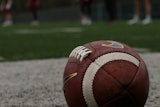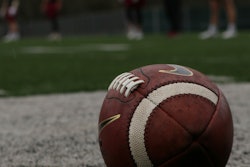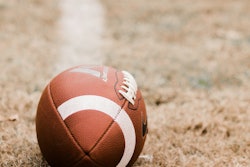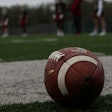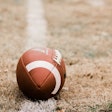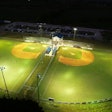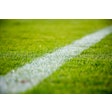A study presented at the American Orthopaedic Society for Sports Medicine’s Annual Meeting showed that the infill weight of synthetic turf surfaces plays a role in the rate of injuries among high school football players.
The study, which was led by Michael Clinton Meyers, PhD from Idaho State University, researched 52 high schools in four states, and evaluated the rate of injuries over five seasons. Each of the participating schools played on fields where the infill system consisted of sand and/or rubber, and were divided into categories based on pounds per square foot.
“Our research showed that as the artificial infill surface weight decreased, the incidence of game-related high school football trauma significantly increased,” said Meyers in a press release.
Injury totals where infill rates were greater than 9 pounds per square foot were significantly lower than fields with lighter infill rates.
“Based on our findings, we would recommend that high school football fields contain a minimum of 6.0 pounds per square foot of infill weight to optimize player safety on artificial surfaces,” Meyers said.
Though the researchers were able to make a recommendation based on their findings, more research is needed. Researchers warned against extrapolating their results to other levels of competition, beyond what they studied.
“With the amount of athletes playing football, and the setbacks associated with injuries, we hope this research will help decrease these numbers and make football safer for young athletes,” Meyers said.














